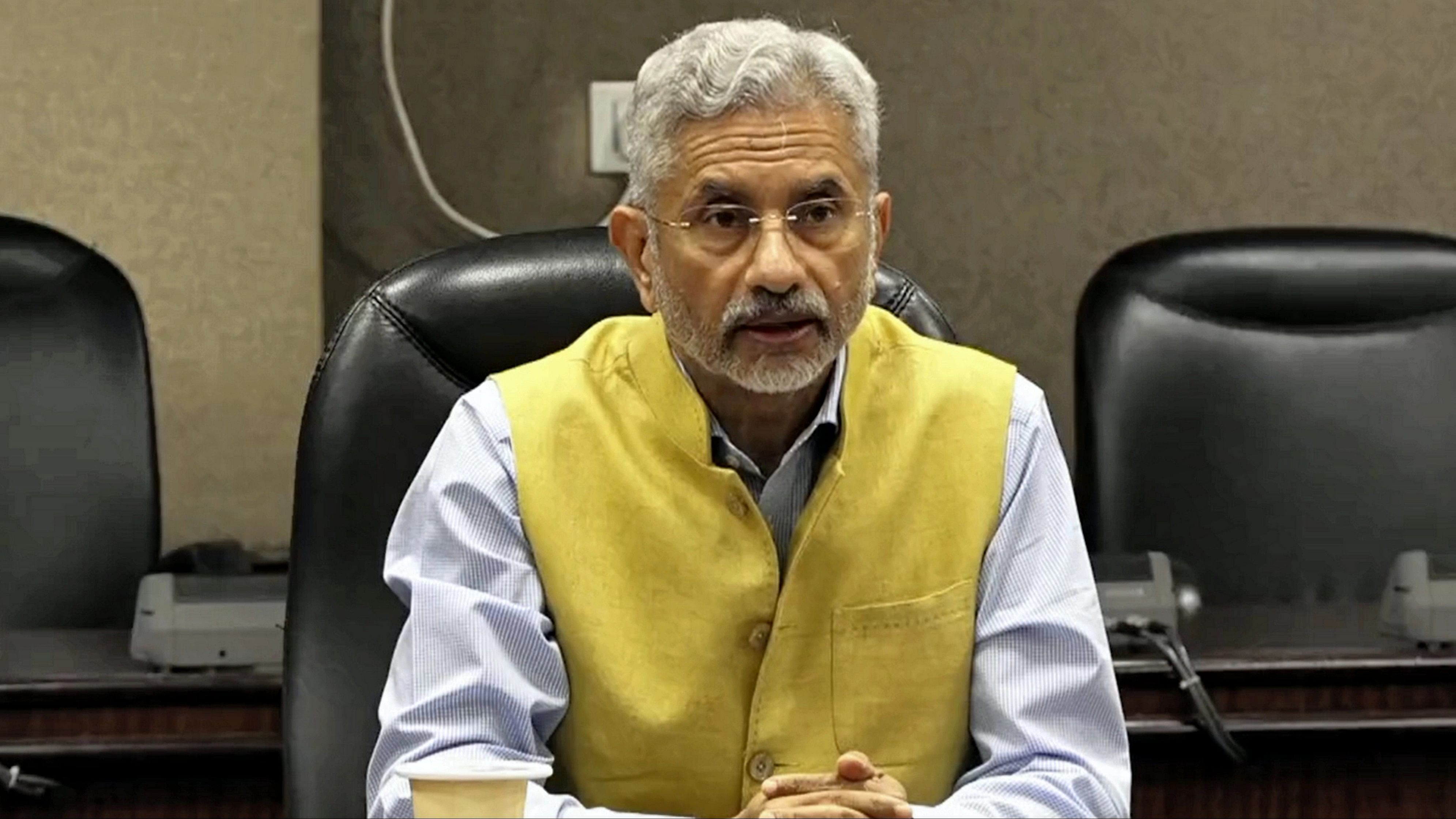
External Affairs Minister S Jaishankar.
Credit: PTI Photo
New Delhi: India has problems with “a certain segment” of the politics of Canada, External Affairs Minister S Jaishankar said on Sunday, subtly blaming only the policy of the ruling Liberal Party dispensation led by Prime Minister Justin Trudeau in Ottawa for the strains in the bilateral relations.
Jaishankar made the comment as Trudeau was criticised by the leader of Canada’s opposition Conservative Party, Pierre Poilievre, for the diplomatic row between Ottawa and New Delhi over the allegation about India’s role in the killing of the Khalistani Sikh terrorist, Hardeep Singh Nijjar, in the North American country. Poilievre recently told Namaste Radio Toronto that if elected to replace Trudeau as the prime minister, he would restore Canada’s “professional relationship” with India.
The external affairs minister also said that India would restart issuing visas to the citizens of Canada only when the security of its diplomats in that country would be ensured. He said that New Delhi had been concerned over “continuous interference” by Canada’s diplomats in the internal affairs of India.
He dismissed the statements by the United States and the United Kingdom that New Delhi’s recent move to make Canada withdraw 41 of its 62 diplomats from India had been contrary to the principle of the 1961 Vienna Convention on Diplomatic Relations. “Parity (between the diplomatic presence of the two countries in each other’s capitals) is very much provided for by the Vienna Convention, which is the relevant international rule on this. In our case, we invoked parity because we had concerns about continuous interference in our affairs by Canadian personnel,” Jaishankar said while speaking at an event in New Delhi on Sunday.
“The relationship right now is going through a difficult phase. But I do want to say, you know, the problems we have are with a certain segment of Canadian politics and the policies, which flow from that,” said the external affairs minister, replying to a question on the Canada-India diplomatic row. “So, I want people to understand the extent of the issue”.
New Delhi has been accusing the Liberal Party government of ignoring its repeated calls to curb the Khalistani Sikh extremists, who were running a secessionist campaign against India from Canada. Trudeau’s government also ignored several requests from New Delhi to extradite Khalistani Sikh extremist leaders from Canada to India.
Trudeau and his government in Canada often invoked freedom of speech as an excuse for not acting against the Khalistani Sikh extremists, who often led aggressive protests against India’s high commission in Ottawa and the consulates in Toronto and Vancouver.
They also ran hate campaigns against India’s diplomats in Canada, particularly after the killing of Khalistani Tiger Force commander Hardeep Singh Nijjar at the parking lot of a gurdwara in the British Columbia province of the North American country on June 18.
New Delhi has been criticising the ruling Liberal Party in Ottawa for indulging in “vote-bank politics” and going soft on anti-India Khalistani Sikh extremists in Canada.
Jaishankar’s comment on Sunday appears to be an attempt by New Delhi to drive home the point that relations between New Delhi and Ottawa had gone on a downward spiral only because of the policies of the government led by Trudeau, who had ignored India’s concerns over activities of the Khalistani Sikh extremists in Canada.
Poilievre, the leader of the Conservative Party, on the other hand, recently condemned the aggression against the diplomats of India in Canada as well as the vandalisation of the Hindu temples in the country. He criticised Trudeau for the recent Canada-India diplomatic row, calling him “incompetent and unprofessional”. The Leader of the Opposition in the House of Commons – the lower house of the Canadian Parliament – went much ahead of Trudeau in the recent opinion polls in Canada, with over 40 per cent of the citizens of the country preferring him as the prime minister. Trudeau’s support remained at 31 per cent.
The relations between the two nations hit a new low in the past few weeks over Ottawa’s allegation about India’s involvement in the killing of Nijjar, the commander of Khalistan Tiger Force, in the parking lot of a gurdwara in Canada on June 18. Both sides expelled each other’s diplomats and issued tit-for-tat travel advisories. India called Canada a safe haven for terrorists and suspended issuing visas for Canadians.
“If we see progress in (ensuring the) safety of our diplomats in Canada, we would like to resume issuance of visas there," Jaishankar said on Sunday. A source in New Delhi said that India was reviewing the security situation that had led to the suspension of visa services in Canada.
New Delhi also made Ottawa downsize its high commission in the national capital of India. The move, according to New Delhi, was initiated in view of Canada’s interference in the internal affairs of India and was intended to bring parity between the number of India’s diplomats in Canada and that of Canada’s in India.
